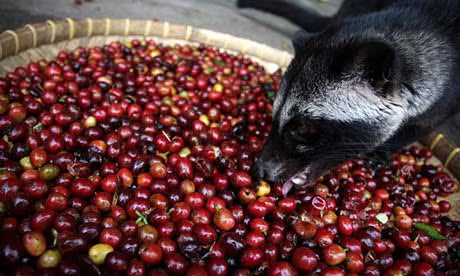
Kopi Luwak: The World’s Most Expensive (and Controversial) Coffee
Share
If someone told you, “Hey, I have the best coffee in the world, but first, it has to pass through the digestive system of a small furry animal,” you’d probably assume they’ve had one too many espressos. And yet, that’s exactly how Kopi Luwak, one of the world’s most expensive coffees, is made.
Kopi Luwak, also known as civet coffee, comes from the beans that have been eaten, digested, and excreted by the Asian palm civet, a small cat-like animal. Yes, you read that right. These critters have an uncanny ability to pick the ripest coffee cherries, which then go through a natural fermentation process inside their stomachs. Afterward, the beans are collected (yes, from the poop), washed, dried, and roasted to become the prized coffee known for its smooth, rich flavour.
Fun Thought: Imagine explaining this process to someone who just started drinking coffee: "So, you know how coffee comes from beans? Well… sometimes, it takes a little detour through an animal’s stomach first."
Kopi Luwak can cost anywhere from $100 to $600 per pound, and a single cup in a luxury café might set you back $50 or more. Why the hefty price tag?
-
-
Scarcity – Only a small amount of true, wild-sourced Kopi Luwak is produced yearly.
-
Labor-Intensive Process – Collecting, cleaning, and roasting these beans takes time and effort.
-
Marketing Hype – Let’s be honest: people love the idea of drinking something exclusive and exotic.
-
The Taste: Is It Worth It?
People who swear by Kopi Luwak claim it has a unique, smooth taste with low acidity and a hint of chocolate and caramel. Others argue that it’s more about the story than the actual flavour. Coffee connoisseurs are divided—some say it’s life-changing, others say you’re better off sticking with a high-quality Ethiopian or Colombian roast.
The rise in demand for Kopi Luwak has unfortunately led to unethical practices where civets are kept in cages and force-fed coffee cherries, stripping away the natural process that made the coffee special in the first place. If you ever decide to try Kopi Luwak, look for brands that ethically source their beans from wild civets rather than farms.
Is Kopi Luwak worth the price? That depends. If you’re a coffee adventurer looking for a unique experience, go for it! If not, there are plenty of amazing coffees out there that don’t involve animal digestion. Either way, it’s a wild (and weird) story to tell over your next cup.
